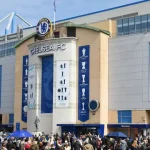Israeli soldiers conducted thorough searches of each building at Gaza’s primary hospital, raising concerns for the safety of Palestinian civilians who are currently trapped inside. The situation is further exacerbated by a communication blackout in the area.
Al-Shifa hospital has become a central target for Israeli military operations in northern Gaza. The soldiers stormed the facility on Wednesday in search of a command center believed to be operated by the militant group Hamas.
Hamas and hospital managers have denied the accusation, but there is global concern for the safety of thousands of individuals, including injured patients and premature babies, who are believed to be trapped.
In response to the October 7 attack by Hamas, which resulted in the deaths of 1,200 people, mostly civilians, and the hostage-taking of around 240 individuals, Israel has made a commitment to eliminate Hamas, as stated by Israeli officials.
According to local authorities in Gaza, who are controlled by Hamas, Israel’s air bombardment and ground operation have resulted in the deaths of 11,500 people, including numerous children.
On Friday, a live camera from AFPTV captured thick dark smoke rising over the northern Gaza Strip. Israeli authorities have justified their operation, with the military claiming to have discovered rifles, ammunition, explosives, and the entrance to a tunnel shaft at Al-Shifa.

Israeli Prime Minister Benjamin Netanyahu has even accused the medical facility of potentially holding hostages.
“We had strong indications that they were held in the Shifa Hospital, which is one of the reasons we entered the hospital,” he told “CBS Evening News”.
“If they were (there), they were taken out,” he said.
There is no confirmation of the allegations made about the hospital, and on Friday, communication with the Gaza Strip was cut off once more.
The Paltel group, which provides network services, stated that all telecommunications were not functioning due to a lack of energy sources and the prohibition of fuel.
The United Nations expressed concern that the blackout would worsen the suffering of civilians, making it harder to deliver aid and potentially leading to looting of their supplies.






